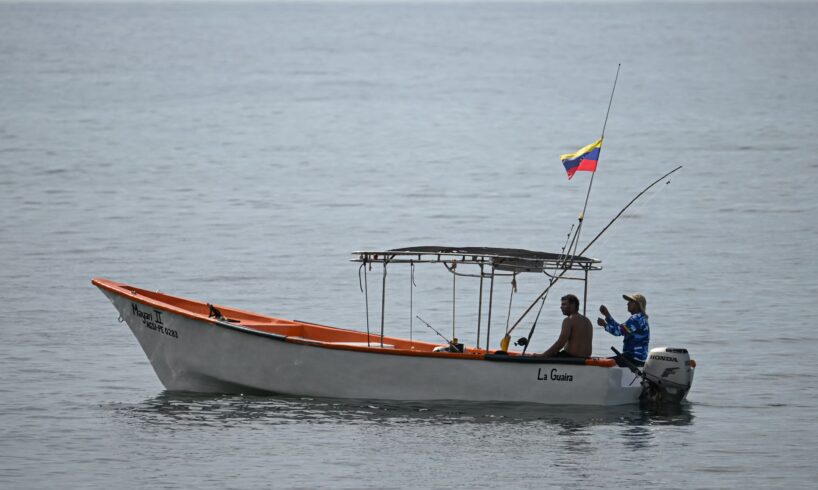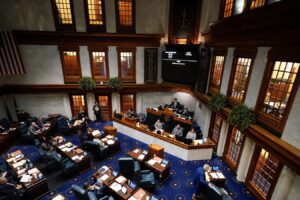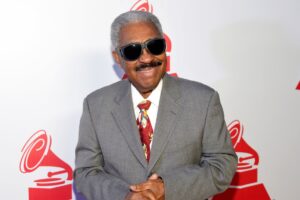
Good morning. The U.S. is waging a war against drug cartels, with Venezuela on the front lines – more on that below, along with Hollywood’s AI crisis and the Jays’ soaring ticket prices. But first:
Today’s headlinesOpen this photo in gallery:
Fishermen sail off the coast of Venezuela.FEDERICO PARRA/AFP/Getty Images
VenezuelaThe United States’ Caribbean campaign
Donald Trump loves a rebrand. Last month, the U.S. President wielded his executive-order Sharpie to proclaim that the Department of Defense would be known as the Department of War. Last week, his administration revoked the visas of six foreigners over posts about Charlie Kirk – a move that’s not about cancel culture, mind you, but something conservatives are styling as “consequence culture.” Now Trump has decided the U.S. is engaged in an “armed conflict” with drug cartels. Smugglers are either “unlawful combatants” or “narcoterrorists.” The war on drugs is literal.
Over the past several weeks, the U.S. deployed roughly 10,000 troops to the Caribbean, its biggest military buildup in the region in nearly 40 years. The Pentagon sent over assault ships, guided-missile destroyers, fighter jets and spy planes. But the focus of this military power has not been on Mexico – the country that produces the vast majority of fentanyl, and is the U.S.’s largest trading partner. Trump is going after Venezuela, a transit hub for relatively minor quantities of Colombian cocaine.
Typically, when the U.S. Coast Guard suspects smuggling, it intercepts the ship, seizes the drugs and prosecutes the traffickers. Rather than doing any of that, the U.S. military has bombed seven boats off Venezuela since September, killing at least 32 people. The White House has not released their names, has not provided evidence that drugs were on board and has not explained why those people posed an imminent risk to the States. There’s no record of the Coast Guard seizing any fentanyl in the Caribbean – but also, illegal drug trafficking is not a capital offence, whatever Trump calls the smugglers. On Tuesday, United Nations experts said the boat strikes amounted to “extrajudicial executions.”
What exactly is going on here? Even the White House seems to tacitly acknowledge its wartime declaration is on shaky legal ground. Late last week, for the first time, the U.S. apprehended survivors of its strikes, two men from Colombia and Ecuador who were brought onto a Navy ship. Holding them in U.S. custody – at Guantánamo Bay, for example – would have invariably opened up scrutiny from the federal courts of Trump’s whole “armed conflict” rationale. He repatriated the survivors to their home countries instead.
Open this photo in gallery:
Trump at the White House on Friday.Jonathan Ernst/Reuters
If you guessed regime change might be motivating Trump, you wouldn’t be the first. He tried to oust Venezuelan President Nicolás Maduro before, back in 2019, issuing threats and oil sanctions to encourage a military uprising that ultimately fizzled. Maduro is a repressive autocrat whose electorate keeps voting against him and whose citizens keep leaving – since 2014, nearly 8 million have fled rampant violence, economic freefall, widespread hunger and hyperinflation. But he’s not the sort of strongman Trump prefers: too leftist, too supportive of Cuba. In August, Trump doubled the bounty on Maduro to US$50-million. Last Wednesday, he announced he had authorized covert CIA operations in Venezuela. (Never mind that it’s not covert if you say it out loud.)
Roughly 85 per cent of Venezuela’s refugees have ended up in nearby Latin American and Caribbean countries. But hundreds of thousands of people managed to settle in America, and White House policy chief Stephen Miller, who spearheaded Trump’s immigration crackdown, would like to see them gone. Maybe the military escalation is part of a pressure campaign to persuade Maduro to take back more deported migrants. Maybe Miller is happy to push the argument that anyone from Venezuela could pose an imminent risk to the States.
Or maybe Trump just wants to demonstrate whose missiles are bigger. Venezuela sits on the largest oil reserves in the world, and Maduro reportedly proposed giving the U.S. a dominant stake in that wealth, while pledging to end his deals with Russian and Chinese energy firms. Trump nonetheless cut off diplomatic efforts this month. On Friday, a journalist at the White House asked why he wasn’t interested in talks, given Maduro had “offered everything in his country.”
“He’s offered everything. You’re right. You know why?” Trump responded. “Because he doesn’t want to fuck around with the United States.”
The Shot‘Without AI, studios are dead.’Open this photo in gallery:
Bryn Mooser is the CEO of Asteria Film Co., which Toronto’s Moonvalley purchased last year.Leeban Farah/The Globe and Mail
Hollywood is having an existential crisis over AI – and one Toronto company is at the centre of it. Read more here about Moonvalley, which promises it only trains its model on content that’s actually been paid for.
The WrapWhat else we’re following
At home: Ontario Premier Doug Ford called out Ticketmaster for “gouging” Jays fans and said he’d consider capping prices – legislation his government scrapped in 2019.
Abroad: Three of the most catastrophic wars in Africa are being fuelled by a fierce competition for gold, cobalt and oil.
Business: Wealthsimple has launched RRSP loans, part of the Toronto fintech’s broader push into retirement planning.
Health: At the Atlantic Menopause Show in Halifax, there’s nothing cooler than a hot flash (except maybe hormone therapy).
Restart: The Maple Leafs and Raptors have bumped up the times of their next few games so people can watch the Jays in the World Series.
Revamp: In a sudden change of plans, Donald Trump will demolish the White House’s entire East Wing to make room for his ballroom.





